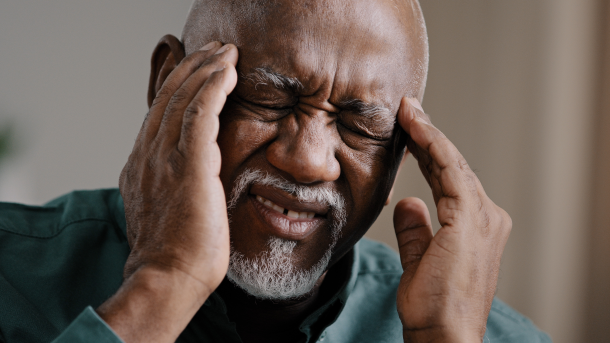
Have you ever tried to remember a word but can’t recall it even though it’s on the tip of your tongue? It’s typical to worry that this is an early sign of dementia, but more likely it’s just a normal cognitive change. Many older adults start to notice that they can’t process information at the same level as when they were younger. While it might be alarming to become slightly more forgetful or have some difficulty finding words, both are common when aging.
“Processing information slows when people age,” explains Umesh Venkatesan, PhD, Moss Rehabilitation Research Institute (MRRI) scientist and director of the Brain Trauma and Behavior Laboratory. “The information is still there but takes longer to retrieve.”
Forgetfulness becomes a medical concern when interfering with the ability to do everyday tasks. A significant decline in memory, thinking and reasoning may be associated with a serious cognitive impairment such as Alzheimer’s Disease or dementia. A chronic disease, cancer treatment, or a brain injury can trigger a cognitive impairment that results in a rapid decline in memory.
So, when should someone be concerned about their memory? Here are some answers to frequently asked questions about cognitive changes and memory.
Is forgetfulness typical with normal cognitive changes?
The brain changes at different levels as we age, causing slightly more forgetfulness or difficulty finding words. Both are signs of normal aging. We may ask for clarification on facts or reminders but can still function and remain engaged and active in life. For example, if Mike, who is 60 years old, forgets the name of the singer whose song is playing and his friend reminds him, he will recognize it immediately. Memory is not gone; it’s just harder to retrieve among the many memories of a lifetime.
When should I worry about memory loss?
Cognitive changes become a concern when a person has a high level of memory impairment and cannot hold onto information. So, Mike, who has driven to work every day for the past five years, suddenly gets lost because he can’t retain information.
What if I have a concern about my loved one’s memory?
During a physician visit, family members can discuss behavior changes of their loved one that might signal something is more than normal aging. “I had a referral from a daughter who noted that her mother was always an excellent housekeeper but was leaving dishes unwashed in the sink and not using food in her refrigerator,” says Maddie DiPasquale, PhD, a clinical neuropsychologist at the MossRehab Drucker Brain Injury Center. “What I hear is a change in a previous level of functioning that is starting to disrupt normal activities of daily living.”
Is memory decline treatable?
Games such as crossword puzzles and chess, regular exercise and a good diet can improve the memory. In some cases, age-related issues such as diminishing vision and hearing can complicate the normal aging process and exaggerate cognitive problems. Glasses and hearing aids are easy solutions for individuals to correct these problems and regain their autonomy. Losing a partner or retiring can cause depression and simulate dementia. Medications and psychotherapy can reengage people in life at a more optimum level.
How does a traumatic brain injury (TBI) affect cognitive health?
A severe brain injury can cause long-term effects on the brain, magnifying or accelerating changes with age like memory. “Brain injuries where a person loses consciousness for a long period are more likely to have long-term impacts on cognition and health,” notes Amanda Rabinowitz, PhD, MRRI Institute scientist and director of the Brain Injury Neuropsychology Laboratory.
What are the long-term effects of a TBI?
According to a study conducted by MRRI, a TBI can accelerate declines in cognitive functions such as memory over time. “Negative effects to the nervous system may be triggered at the time of an acute brain injury and slowly develop over time and unmask as an individual gets older,” notes Dr. Rabinowitz.
The combination of aging and brain injury effects might multiply conditions related to brain disorders and cardiovascular diseases that increase the risk for dementia, depression, anxiety, and sleep disorders.
Are there any TBI treatments for healthy aging?
Dr. Rabinowitz, along with Drucker Brain Injury Center Clinical Director Tom Watanabe, MD, are participating in a study to develop a BeHEALTHY model of new clinical treatments and self-management practices for individuals with TBI. New protocols will make clinical care providers more aware of the needs of people with TBI and how to care for them. Self-management strategies will teach a person with a TBI how to actively manage their health.
“We think one reason that people with a TBI might have worse outcomes is that they're not as good at managing other aspects of their health because of cognitive changes, physical limitations and resource barriers,” explains Dr. Rabinowitz. “With the right tools and self-management approaches, people with TBI can control their conditions.”
Learn about MossRehab Traumatic Brain Injury Program.